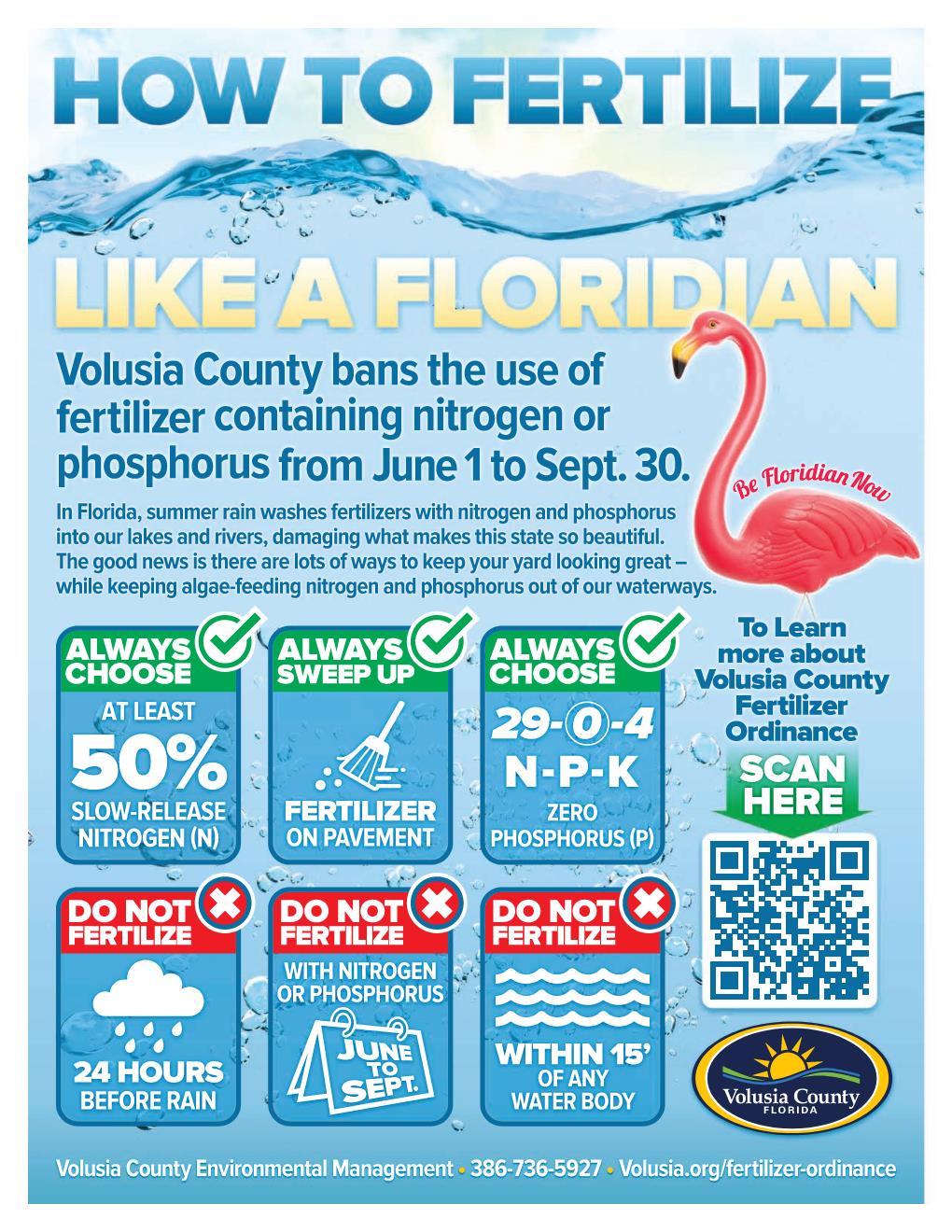Be Floridian Now

Following Volusia County’s fertilizer ordinance can help residents and lawn care companies lessen their impact on our local water bodies.
The ordinance includes a ban on the application of any product containing nitrogen or phosphorus from June 1 through September 30. Outside of that ban, from October 1st through May 30th, any nitrogen that is applied must be at least 50% slow-release. Phosphorus may not be applied at any time of the year without a proven deficiency from a soil test.
From October 1 through May 30, if you must fertilize, just remember “Twice is Nice." Fertilize once in the spring, and once in the fall, with 50% or more slow-release nitrogen.

How to Fertilize Like a Floridian [PDF]
Why is the Fertilizer Ordinance important?
Regulation of nutrients, including both nitrogen and phosphorus contained in fertilizer, will help improve and maintain water and habitat quality.
Fertilizer Rules
Poor water quality not only affects the creatures that live there, but also our quality of life, drinking water, tourism, and property values. Wee need to be good stewards of the land to protect our waters.
How to Read Labels

There is a lot to consider when choosing fertilizer. Use these resources to select the right fertilizer for you.
Don't Let Green Go Down the Stream. [PDF]

See the habitat planting guidelines for native landscaping in your yard.
Still have questions?
Please see the Fertilizer Ordinance frequently asked questions.
Subscribe to the Sustainability and Resilience newsletter by clicking here.




